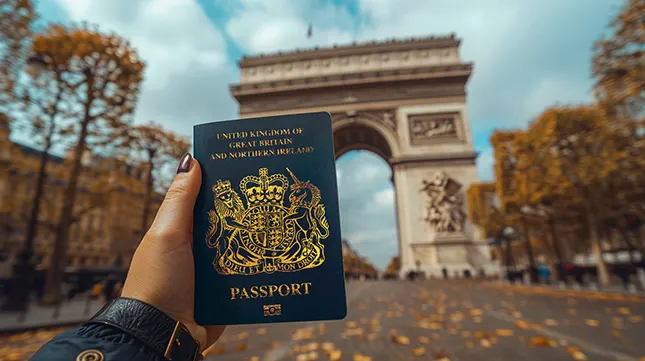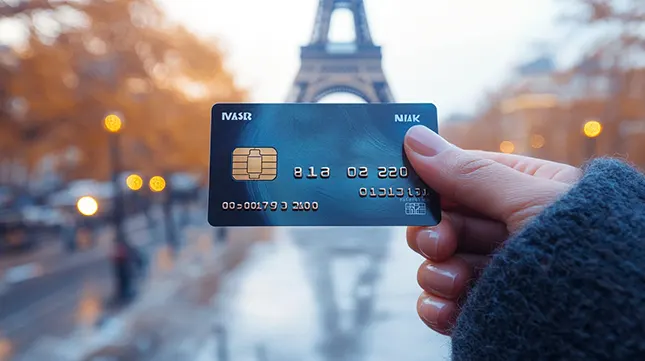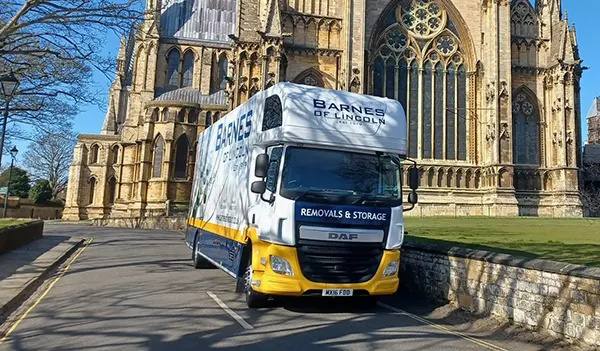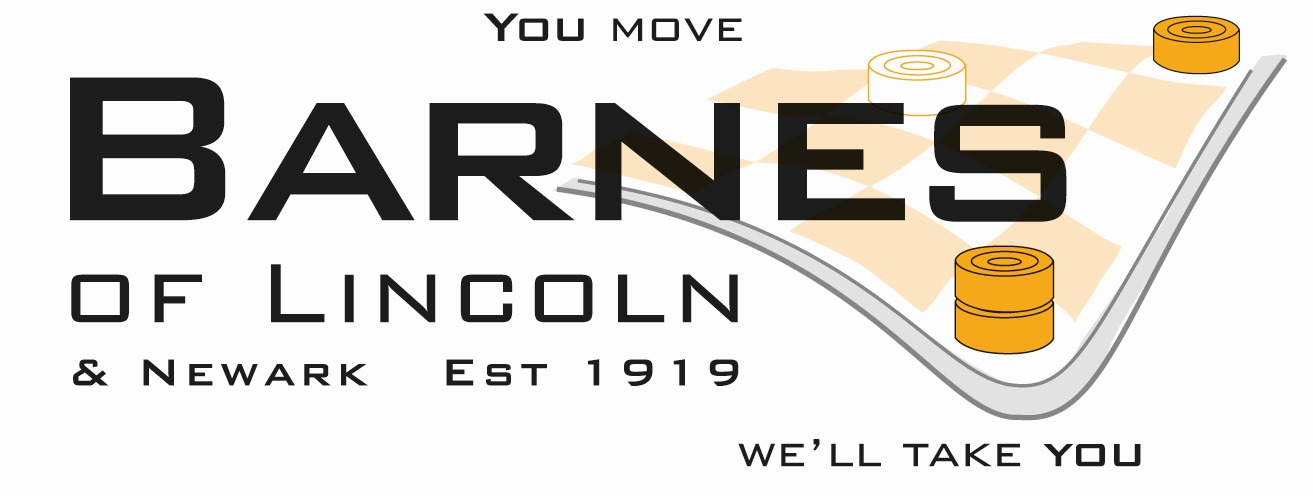Are you considering moving to France from the UK?
France has long captivated the hearts of Britons, offering a rich tapestry of culture, cuisine, and scenic beauty.
The vibrant life of Paris, the serene landscapes of Provence, or the coastal charm of Brittany, if you are moving to France, it will be an exciting venture.
The additional bonus when you re-locate to France, family and friends can visit via road, rail, and air, keeping homesickness to a minimum.
However, for those considering a move to France, post-Brexit, the journey requires careful planning and understanding of new regulations.
This guide provides comprehensive insights to ensure a smooth transition from the UK to France and what to expect when you get there.
Understanding Post-Brexit Regulations

With the UK’s departure from the European Union, unfortunately, British citizens no longer enjoy the freedom of movement previously afforded to EU members.
This change necessitates obtaining the appropriate visas and residence permits to live and work in France.
The good news is that there are numerous visas and there is sure to be one that fits your circumstances.
Various Visa Requirements

Give yourself plenty of time to arrange the correct visa.
There are numerous visa options available however, these are the main ones:
Short Stays (Up to 90 Days): UK nationals can visit France without a visa for tourism or business purposes for up to 90 days within a 180-day period.
Long Stays (Over 90 Days): For stays exceeding 90 days, a long-stay visa (visa de long séjour) is mandatory.
The type of visa depends on your purpose, such as work, study, or family reunification.
Detailed information and application procedures are available on the official French government website.
Residence Permits
After arriving in France with a long-stay visa, you must apply for a residence permit (titre de séjour) to extend your stay beyond the visa’s validity.
This process involves registering with the local prefecture and may require proof of income, health insurance, and accommodation.
More details can be found here at Visaguide.world.
Having the correct visa before arriving in France is crucial to ensure a smooth and legal transition.
Without the appropriate documentation, you may face entry denial, legal issues, or difficulties accessing essential services like healthcare and banking.
Proper preparation prevents delays, fines, or even deportation, ensuring a hassle-free move.
Mastering the French Language
Learning French is one of the biggest challenges expats encounter when moving to France, many who struggle with the language find it difficult to settle in long-term.
While basic phrases may be enough for a short trip, daily life requires more fluency, especially when handling essentials like medical appointments, banking, and shopping.
Fortunately, French is one of the easiest languages for English speakers to learn, thanks to shared vocabulary and similar grammar structures.
Starting before you move is ideal, but many expats recommend learning as you go to pick up natural, conversational French.
Larger towns and cities offer free or low-cost French classes for newcomers, a great way to learn while connecting with other expats.
Online platforms like Babbel and Lingoda also provide flexible, interactive courses. Locals appreciate any effort to speak French, making it easier to integrate into your new community.
Financial Considerations

Your French journey cannot happen without time spent on arranging and ensuring you have enough money to fund it.
Understanding the financial implications of your move will make it easier for you on a number of levels.
A stable financial plan also helps meet visa requirements, as proof of income or savings is often needed.
Additionally, understanding the cost of living, tax obligations, and exchange rates will prevent financial stress and help you establish a secure future in France.
Cost of Living

The cost of living in France varies by region. Major cities like Paris tend to be more expensive, while rural areas offer a more affordable lifestyle, like the UK.
Here we take a look at a cost comparison to give you an idea of what to expect from your day-to-day expenses.
Utilities, including electricity, heating, cooling, water, and rubbish disposal, average around €150 (£126) per month for an 85 square meter apartment. This is just over half the price compared to the UK.
On average, rent for a one-bedroom apartment in Paris is around €1,063 (£893) while the outskirt of the city sees a drop in costs to around €509 (£427) per month, a significant saving.
Groceries and dining out also present varied costs.
A meal at an inexpensive restaurant might cost €15 (£12.60) compared to £17 (€20.23) in the UK.
While a mid-range restaurant for two could total around €60 (£50) and in the UK £65 (€77).
Most grocery prices are fairly comparable, with a litre of milk costing about €1.15 (£0.97), a loaf of bread €1.50 (£1.48), and a dozen eggs approximately €3.50. (£3.15).
Transportation cost is another important cost of living factor.
Most cities offer extensive public transport networks, and a monthly public transport pass costs about €75 in Paris which is significantly less than in London which comes in at 50% more expensive.
Overall, while some areas in France, particularly urban centres, can be expensive, many regions offer a lower cost of living compared to the UK.
This is even more noticeable in rural areas which provide more affordable housing and everyday expenses, making them attractive options for expats looking to stretch their budgets while enjoying the French lifestyle.
All statistics are taken from Numbeo, the cost-of-living website, be sure to check it out for even more helpful insights!
Banking and Taxes

Opening a French bank account simplifies bill payments and salary deposits.
You will need proof of identity, residence, and employment or income.
Take the time to familiarise yourself with the French tax system, as residents are subject to income tax on worldwide earnings.
Major banks in France, including Crédit Agricole, BNP Paribas, andSociété Générale, offer tailored services for expats.
Crédit Agricole provides non-resident accounts, BNP Paribas has international banking options, and Société Générale is known for its extensive cash machine network and robust online banking.
Having a local bank account also helps establish a financial history in France, which can be useful for securing loans, renting property, or accessing additional financial services such as insurance and investments.
You might want to consider consulting a bilingual tax advisor who can provide personalised guidance,Russell Cooke are a good option.
Exchange Rates – Getting an Advantage
Getting the best exchange rate is important when relocating to France, as it affects everything from daily expenses to the cost of buying property.
Even small fluctuations can significantly impact your budget, so keeping an eye on exchange rates is essential.
For real-time euro-to-pound rates and historical data, visit the Bank of England.
Alternatively, specialised currency transfer services (FX companies) like Currencies Direct often provide better rates than traditional banks and lower fees for international transfers.
Planning currency exchanges strategically can help you save money, allowing you to maximise your financial resources as you settle into your new life in France.
Finding Work in France as a British Expat

If you are planning to work in France, securing the right visa or residency permit is your first essential step.
UK nationals now require a long-stay visa to legally work in the country.
Salaried employees need a Visa de Long Séjour valant Titre de Séjour – Salarié, while self-employed professionals must apply for the Entrepreneur/Profession Libérale visa.
Finding a job before relocating can make the emigration process easier, as many employers assist with work permits and even healthcare registration and in some cases schooling for your children.
However, if you plan to job hunt after arriving, be proactive, learning French significantly improves employment prospects.
French employers value formal qualifications, so bring copies of diplomas and certificates.
Tailoring your CV and cover letter in French also gives you an edge.
For expert guidance, job listings, and application tips, visit Expatica or Campus France to help you navigate the French job market successfully.
Essential ID Numbers for Expats Working in France
Once you start working in France, you’ll be assigned two key identification numbers: a tax identification number (SPI) and a social security number (INSEE).
The SPI number is issued by the French tax authorities and is used to track your tax payments and ensure compliance with local tax laws.
You will need this number when filing tax returns or dealing with financial institutions.
The INSEE number, often called the French social security number, is essential for accessing healthcare, unemployment benefits, and pension contributions.
Without it, you will not be able to receive state medical cover or social security support.
These numbers are crucial for integrating into the French system, so ensure you apply for them promptly after securing employment.
Settling Into Work Life in France: What to Expect
Starting a new job in France can feel daunting, but understanding workplace culture will help you get to grips with the way the French interact in the workplace.
The standard workweek is 35 hours, though some industries may have longer hours with overtime pay.
France also enjoys 11 public holidays, giving workers well-earned breaks throughout the year.
Plus, the general rule is five weeks paid leave per year with many companies imposing a two- week closedown period in August.
Lunch time can be up to two hours long and eating a sandwich at your desk is not only considered negatively but also forbidden by the law!
Punctuality is important, arriving on time shows professionalism and respect.
The workplace tends to be formal, with clear hierarchies and structured interactions. However, once you adjust, you will find that French colleagues are warm and welcoming.
Building relationships is key to career success, so adapting to workplace customs, such as proper greetings and professional etiquette, will help you integrate smoothly.
The French are notoriously aware of the work/life balance and value their free time using the adage “they work to live, not live to work.”
Embracing the French work culture will make your transition both rewarding and enjoyable.
What to Expect from France’s Weather as a Newcomer

The country is huge, the third largest in Europe, covering around 248,600 square miles so France’s climate varies widely depending on where you live.
If you are moving to Paris or the north, expect cool winters (around 3°C in January) and mild summers (averaging 25°C in July).
The south of France enjoys a Mediterranean climate, with hot, dry summers (often exceeding 30°C) and mild winters.
The Alps and Pyrenees see heavy snowfall, making them a paradise for winter sports enthusiasts.
Rainfall is spread throughout the year, with coastal regions like Brittany experiencing more showers.
Before relocating, check the latest weather conditions in your chosen area using Météo France or BBC Weather to stay informed.
Understanding Healthcare in France

France’s healthcare system is one of the best in the world, providing high-quality medical services for residents and expats alike via public and private sectors.
However, to access public healthcare, you’ll need to register for French health insurance (Protection Universelle Maladie – PUMa) within three months of arrival.
Until then, having private health insurance is essential to cover any medical costs.
Numerous providers offer expat-friendly policies, such as TopExpat Insurance and Bupa.
For a full breakdown of healthcare coverage, Expatra provides detailed guidance.
One key difference many UK expats notice is that emergency medical services in France are often more efficient.
However, if you are moving to a rural area, be mindful that ambulance response times may vary.
By planning ahead and securing the right coverage, you can ensure a smooth transition to France’s excellent healthcare system.
The French Education System

France offers a high-quality, structured education system, with schooling compulsory from ages 3 to 16.
Public schools are free and follow the national curriculum, while private and international schools provide alternative options, often catering to expats.
The system is divided into:
- École Maternelle (ages 3-6) – Preschool, focusing on early learning.
- École Élémentaire (ages 6-11) – Primary education, covering core subjects.
- Collège (ages 11-15) – Middle school, ending with the Diplôme National du Brevet.
- Lycée (ages 15-18) – Secondary education, leading to the Baccalauréat (needed for university).
For international options, Lycée International de Saint-Germain-en-Laye and British School of Paris cater to expat families.
To explore schooling options in your chosen French area, visit Service Public, France’s official education portal.
Investing in French Property: A Guide for Prospective Buyers

Currently, the French housing market continues to experience a slowdown, with both home sales and construction activity remaining sluggish.
However, a gradual recovery is expected as credit conditions improve and government policies aim to support the sector.
Purchasing a home in France offers diverse options to suit various tastes and budgets.
While urban centres like Paris command higher prices, averaging €10,000 (£8,409) per square metre, rural regions present more affordable opportunities.
For instance, in the areas of Haute-Vienne and Corrèze in south-central France, the average property price is as low as €888 (£746) per square metre.
Before committing, renting in different areas to experience various locales firsthand is advisable.
This approach helps identify a region that aligns with your lifestyle and financial considerations.
France offers abundant land for those interested in constructing a new home, often at competitive prices.
However, it is crucial to research and verify building permissions before purchasing. Global Property Guide
The best way to get a true reflection of the cost to buy a home in France is to spend time searching the various online real estate agents.
Platforms such as French Property.com and for something a little more familiar, Rightmove list thousands of homes for sale across the county.
Both also provide an insight to rental costs too!
Embarking on the journey of buying property in France is a significant decision.
With careful planning and consideration, you can find a home that not only meets your needs but also offers a fulfilling lifestyle in this diverse country.
Driving in France as a UK Expat: What You Need to Know

If you are planning to drive in France as a UK expat, there are a few key things to keep in mind.
UK driving licences are valid for short stays, but if you become a resident, you will need to exchange your licence for a French one within 12 months.
You can apply through the official government portal ANTS.
France has strict road rules, including mandatory breathalyser kits, reflective jackets, and warning triangles in your vehicle.
Speed limits also vary depending on weather conditions, and speeding fines are rigorously enforced.
Motorway tolls (péages) can add to travel costs, so consider using Autoroutes.fr to check routes and fees.
If you are driving an older diesel vehicle, be aware of low-emission zones in major cities like Paris.
The RAC also have some excellent information about driving in France.
Understanding local laws and road signs will help you drive safely and avoid fines while settling into life in France!
Moving to France with Domestic Pets

For pet owners, relocating to France is possible, but it requires careful planning to ensure your pet experiences as little stress as possible.
You can bring dogs, cats, and ferrets, as well as other animals like reptiles, rodents, amphibians, and tropical fish, but specific rules apply.
Birds, in particular, have additional import requirements.
Since Brexit, EU Pet Passports from the UK are no longer valid. Your pet must have:
- A microchip
- An up-to-date rabies vaccination
- An Animal Health Certificate (AHC) issued within 10 days before travel (costing around £60-£120)
If you are driving to France through other European countries, check entry regulations for each country on your route.
A bonus for renters: French landlords cannot legally ban pets. However, some may still be hesitant, so be prepared to discuss this when securing a rental.
For detailed pet travel guidance, visit:
🔗 UK Government Pet Travel
🔗 Pets That Travel
Exporting your pet with a reputable pet transport company will greatly ease the stress on your animals.
Pet Air has been in business for over 20 years and has shipped thousands of pets to France and the rest of the world.
For an easy-to-follow step by step guide to exporting your beloved animals take a look at the UK pets web site.
Getting Your Belongings to France
Once you have planned your move to France, the next big step is getting your belongings safely to your new home.
There will be much to do and relocating abroad can be overwhelming at times, but as with all aspects of your relocation, careful preparation makes all the difference.
Hiring a trusted international removals company can help streamline the process.
Before packing, take this chance to declutter, sell, donate, or recycle items you no longer need. Fewer belongings mean lower moving costs, as removal charges depend on weight and volume.
To avoid import taxes, all used household goods must have been owned and used for at least six months in the UK.
Be aware that any new items you have may be subject to French customs duties, so keep receipts as proof of purchase if you purchase anything before you go.
For detailed customs guidance, download regulations from FIDI or check GOV.UK Moving to France.
Removals to France with Barnes of Lincoln

Barnes of Lincoln offers expert European removal services tailored to your specific requirements.
With years of experience, we handle everything from packing and transport to customs paperwork.
We offer two main services:
- Full Load Service – A dedicated vehicle for faster, direct delivery with a set arrival date.
- Part Load Service – A cost-effective option where your belongings share space with others, ideal for those with flexible dates.
Our professional team manages large furniture, parking permits, and secure packing, ensuring your possessions arrive safely and on time to your new home in France.
Contact Barnes of Lincoln today at 01522 254262 for a free quote, and let us make your move to France as easy as possible.




